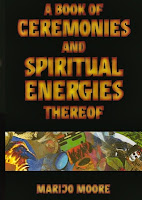 |
| Dred Scott |
SELF
PORTRAIT
It’s always sobering—
For an aging baby boomer
Like me to sometimes do
A little Self Portraiture
Outta the WW II womb—
And Great Depression
Viola! A bunch of us
Pampered spoiled brats
Drive In junkies—
We had cars back then
Postwar rug-rats and the
Whole world was ours
______________
Hot Elvis the Pelvis—
Ducktail Rock & Roll!!!
Wild and Affluent youth
We had things to do!
Too good to be true—
They laid the nefarious
Viet Nam War on us to
Control our Generation
It seems like there’s—
Always intergenerational
Warfare going on between
Kids and parents
_________________
There were simply—
Too many of us wild
Turbulent youth so let’s
Have another War, dears!
And so they gave us—
Nixon and “Night of
The Living Dead” to put
Down our 60’s Libido
Body-bags and war—
Such dirty things but
What the fucking hell
War economies work!
_____________
“Love not War!” —
Proclaimed the Hippies
Counterculture protest &
Generational War began
It’s Still going on—
So many fucking wars later
Each generation faced with
The same denouement
NOW it’s gay lib’s turn—
We’re all just Fag slackers
“Bestiality” Bad Boyz the
Great Law scholars call us
________________
Gay marriage approved—
Slowly state by state despite
DOMA declaring its sanctity
Ever So Heteronormative!
Salome does her lovely dance—
Oscar Wilde gets another chance
To dance with the Supreme Court’s
Esteemed Justice Antonin Scalia
“Heads” or Tails it’s bound to be—
The Dance of the Seven Veils
If only “Salome” Rita Hayworth and
Charles Laughton could be there
_________________
And so here I am, my dears—
Nothing but a minor little pawn
A mere Reductio ad absurdum
“Fallen Angel” it seems for now
Not that future generations—
Will even remember the trials
And tribulations of what’s coming
Down in this so-so legal soiree
_____________________
My whole life now seems somewhat—
Caught up between two important
Legal cases: “The Dred Scott Decision”
With Blacks & me simply slave chattel
And “Brown vs. Board of Education 1954”—
Concerned with equal educational rights
And opportunities of African-Americans
And now GLBT citizens as well, my dears
Link to Dennis Kelly webpage:









web.jpg)




